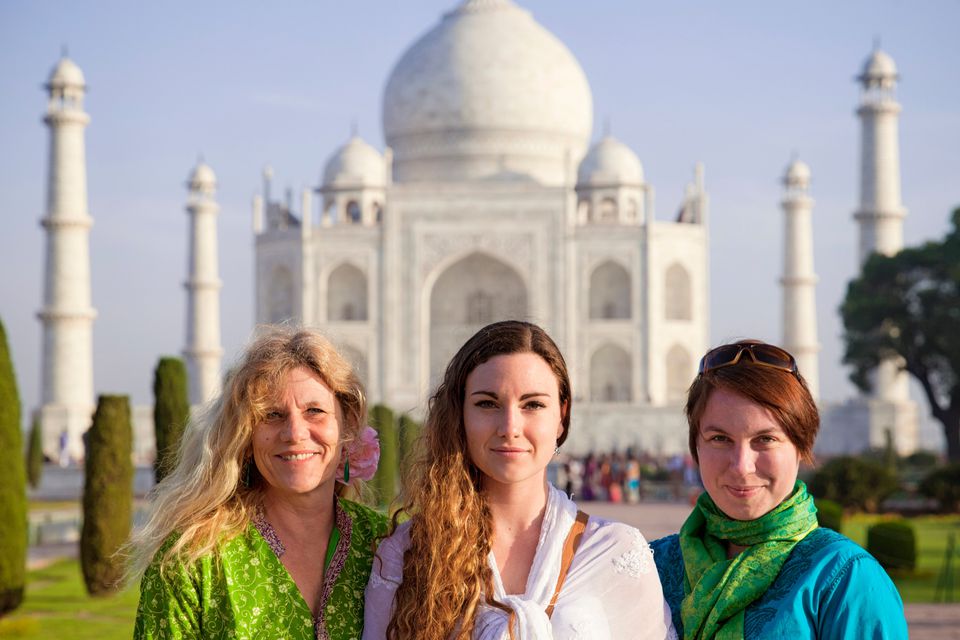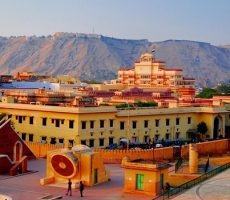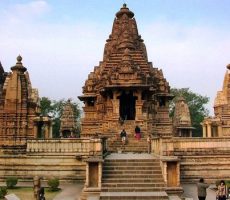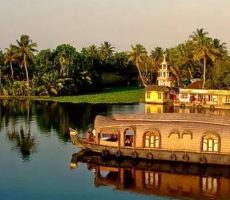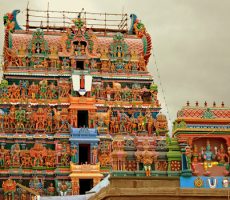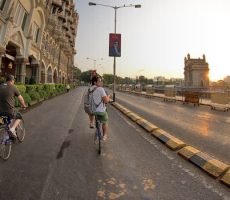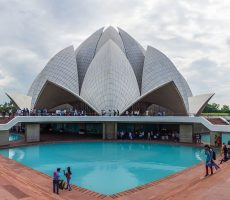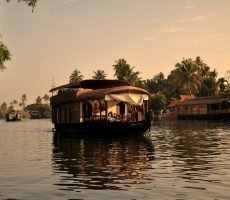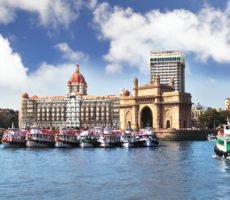Types of Indian Visas Guide
This year the government of India made vital changes to kinds of Indian Visas offered with effect from April 1, 2017. In this article you can find various types of Indian Visa.
This enables you to know about various kinds of Indian visas that are available.
1. Tourist Visa
Several tourists from all over the world visit India, a happening tourist destination. This is one of the most popular types of visas. For those who would like to view spectacular sights of ancient India and check out short yoga can go for this visa. There are times when tourist visas are granted for longer than six months, once again it depends on the nationality of the Visa applicant.
However, it is still not possible for a tourist visa holder to stay in the country for greater than six months at a time. Late in the year 2009, India brought in new rules regarding the tourist visa. This was to stop people from misusing the Indian Visa. A specific gap of two months’ period was mandatory in between visits to India. Later, toward the year- end 2012 this rule was removed. There are a few exceptions that still exist though.
If you apply for tourist visa in one month of expiration of your old tourist visa then it may take almost 45 days’ time. The lengthy wait is because approval has to be taken from the Ministry of Home Affairs. As a tourist you must know about the Top Things to do in India.
Suggested tour packages for India tours –
- 6 Nights / 7 Days – South India Temple Tour
- 7 Nights / 8 Days – Shimla Manali Kullu Tour
- 10 Nights / 11 Days – Central India Tour
- 15 Nights / 10 Days – Delhi Udaipur Agra Kathmandu
- 15 Nights / 16 Days – North India Himalaya – Delhi Manali Ladakh Road Trip
Must Read: India’s 10 Best Summer Destinations for Perfect Vacation
E- Visa Scheme
There are latest technologies in place for E-Visa or Electronic Visa Scheme for 161 countries’ citizens. Visitors to India can apply for this type of Electronic Travel Authorization via online. Then upon arrival the visitor can get a Visa stamp to enter the country. This is valid for a period of 60 days as opposed to the earlier time duration of 30 days.
Under this Travel Program the scope of this type of visa was increased to include short term medical treatment, attend short term yoga program / courses, and casual business visits and conferences. This is an easier facility as earlier there was a separate requirement for any of the above like business trip, short term medical, etc.
Plan your India tour with us.
Check out the best tour packages for your trip.
Also Read: How to Get India Tourist Visa – A Complete Guide
2. Entry (X) Visa
This type of Visa is for the people of other countries who want to come over to India but do not come under any specific category for an Indian Visa applicant. Examples are volunteers, etc. There were some changes about who can apply or obtain this type of Entry X Visa. It is limited for the below types of visitors to the country:
- A foreigner who is of Indian origin.
- The above person’s spouse and kids or Indian citizen.
- The spouse and dependent kids of a foreigner visitor on a long term Visa like Employment visa / Business Visa.
However, those who are of Indian Origin and visiting India can apply for this Visa while visiting India. The Entry X Visa is not subject to two months’ gap. Those holding this type of Visa cannot work in India on X- Visa. X Visa holders can get an extension in India and it is not required to leave every six months.
Read Also: 30 Best Places to Visit in India
3. Employment Visa
This kind of Visa is obtained by foreigners who work in India, for an organization that is registered in India. Previously foreigners who were involved in volunteer work in India on long-term basis were on X- Visa. However, now they are granted Employment Visas. Generally, Employment Visas are granted for the term of the contract or one year period.
However, this type of visa holders can get an extension. Previously Employment Visa rules stipulated that applicants must fall under the $25,000 annum income category in order to obtain the Employment Visa. Effective April 1, 2017 this income category was lowered in order for foreigners to be able to teach in Central Higher Educational Institutes. Employment Visa applicants have to provide proof of employment with the organization in India for instance, a terms and conditions contract.
There are a few other exceptions for non –English Teachers, members of Foreign High Commissions and Embassies, translators, volunteers and ethnic cooks.
Must Read: 10 Interesting Facts about India and Indian Culture
4. Intern (I) Visa (New)
Earlier any foreigner pursuing an internship program in an Indian organization had to obtain an Employment Visa. Post April 1, 2017, upon meeting specific conditions, foreigners can obtain an Intern Visa. There should not be a gap of more than one year after the Intern Visa applicant graduated or done Post Graduation and the start of the intern program.
This visa is valid until the internship program duration or for a year. So if the internship ends within 10 months then the validity period of the Intern Visa is 10 months. This kind of visa cannot be converted to Employment Visa other Visa type.
Explore: Umaid Bhawan Palace in Jodhpur
5. Business Visa
There are people outside of India who would like to know about business opportunities. So the Business Visa is for such kind of foreigners who would like to conduct business in India. The Business Visa Holder / applicant cannot work for an organization in India. The Business Visa holder cannot earn income from company / organization in India.
The Business Visa applicant requires a letter from the business / organization they intend doing business with some details. These details would be regarding duration of stay, the nature of the business, places to be visited, and intention to meet expenses. The validity period for a Business Visa is up to 5 years with multiple entries.
However the business visa holder cannot remain for more than six months at once in India. Depending on the nature of business there are some Business Visas granted to foreigners that set up joint ventures in India for a period of 10 years.
Read On: Top 10 Vacation Destinations to visit in India in March 2019
Suggested Tour Packages:
- 1 Night / 2 Days – Varanasi and Sarnath Tour
- 1 Night / 2 Days – Taj Mahal Trip from Goa
- 1 Night / 2 Days – Taj Mahal Tour ( Agra ) from Kolkata
- 1 Night / 2 Days : Taj Mahal Tour from Bangalore
6. Student Visa
Foreigner students who would like to study long term courses in India obtain this kind of visa. Foreign students go for officially recognized education institutions in order to study a long term course. These study courses include Yoga Study, Vedic Culture, Indian System of Music & Dance, etc.
It is required to provide student admission or student registration papers of the institution to obtain the Visa. The validity period of such visas are generally issued for the duration period of the course or up to 5 years that can be extended in India.
Several times you may have heard the term ‘Yoga Visa’ which is actually a Student Visa obtained for the purpose of studying / learning Yoga. Students intending to study long term Yoga in these popular Indian Yoga Centers must obtain a Yoga Student Visa required by the institute. Though tourist visas are for short term Yoga, it is required to obtain Student Visa / Yoga Visa for long term study of Yoga.
Suggest Article: Top Yoga Retreats in Goa
7. Conference Visa
Foreign delegates who would like to be part of Indian government organization Conferences are issued such types of visas. Generally Conference Visas are issued to foreign delegates to be able to attend a conference in India organized by an Indian Government Organization. For foreign candidates who would like to attend a private organization conference in India require to obtain a Business visa.
Read More: Ten Top Photographic Spots in Delhi
8. Journalist Visa
As the name suggests this type of visas are for professional journalists / photographers. If a Journalist photographer would like to access a certain region or meet with a certain person he can obtain a Journalist visa. This is generally issued for duration of 3 months and is one of the toughest Visa types to obtain.
In case your occupation / profession shows up as a journalist or photographer on your Visa application or if Visa applicant is a media company employee, then he / she is likely to be issued a Journalist Visa in India. This is because India is sensitive to those involved in media visiting India including editors and writers because of how the country may be portrayed.
Those who would also like to do a documentary film or advertisements shooting in India have to apply for Journalist Visa.
Must Visit: Travel Guide to Discover Pangong Lake in Ladakh
9. Film Visa/ (F) Visa: (New)
However, in case you would like to do a commercial film or a TV show in India you will be required to apply for Film Visa from April 1, 2017. The Ministry of Information and Broadcasting reviews and processes this F- Visa application in 60 days. The validity of Film Visa is for a period of one year.
Read On: Why Mumbai is called as City of Dreams ?
10. Research Visa
This is another tough restricted visa which has several requirements. Professors and Research Scholars who visit India for the purpose of research are issued this type of visa. These Research Visa Applications are approved by Department of Education, Ministry of Human Resource Development that could take up to 3 months’ time.
Explore: Top 10 Unheard Historic Places In India
11. Medical Visa
This Visa type is specifically for the patients who seek medical treatment in recognized treatment centers and specialized hospitals in India. This could be for significant treatment like organ transplant, neurosurgery, gene therapy, heart surgery, joint replacement, and plastic surgery. Those who accompany the patient are issued Medical Attendant Visas (up to 2).
Also Read: Has Airport Become Your Second Home? Checkout These Airports
12. Transit Visa
This is a short span Visa as those visiting / staying in India lesser than 72 hours obtain this type of Visa. While applying for Transit Visa it is required to show a confirmed airline booking of the onward journey. If foreigner has to stay for more time he / she require a Tourist Visa. This is valid for maximum 3 days for direct transit single / double entry within 15 days from date of issue.
Related articles about India:-
- Tips for choosing a memorable family itinerary for Vacation in India
- Why should India be your next Travel Destination?
- 15 Reasons Why You Should Visit India
- 25 Ways to Save Money on India Trip
- Interesting and Unusual Facts About India
- Safety & Security Tips for India Tour
- Top 10 Places to Visit in Central India
- Top 10 Places for a Relaxing Vacation in India
- Amazing Facts about Gwalior Fort that you might never knew

